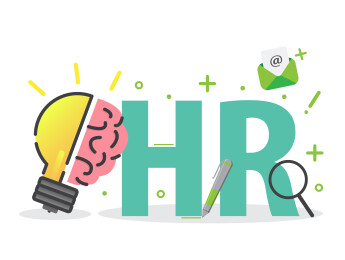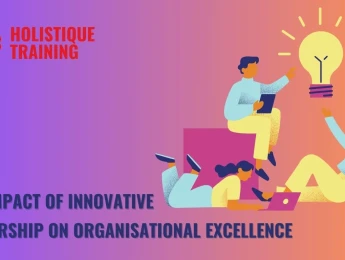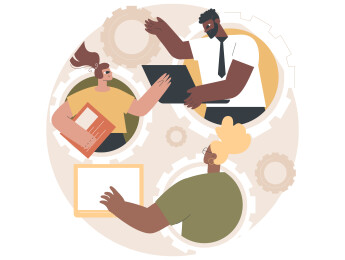- Table of Contents
- Introduction
- Who Is the Secretary?
- What Are the Secretary's Top 7 Joint Duties?
- 1. Managing Communication Channels
- 2. Scheduling and Calendar Management
- 3. Documentation and Record-Keeping
- 4. Travel Arrangements and Logistics
- 5. Meeting Coordination and Support
- 6. Administrative Support
- 7. Office Management and Supplies
- Why Are Secretaries Important for the Flow of Work?
- Efficient Communication
- Time Management
- Organisation and Documentation
- Resource Management
- Conflict Resolution and Decision-Making
- Client and Stakeholder Relations
- Top Skills to Look for in a Secretary
- Excellent Communication
- Time Management and Organisation
- Attention to Detail
- Technical Proficiency
- Professionalism and Discretion
- Adaptability and Flexibility
- Interpersonal Skills
- The Evolution of Secretarial Roles in the Digital Age
- Digital Tools and Automation
- Virtual Communication Platforms
- Cybersecurity and Data Protection
- Social Media Management and Online Presence
- Data Analysis and Reporting
- Remote Work Facilitation
- Continuous Learning and Adaptability
- Conclusion
Introduction
The heartbeat of any organisation lies in the meticulous coordination of tasks, effective communication, and streamlined operations. At the centre of this intricate web of efficiency stands the secretary. Often overlooked, the role of a secretary extends far beyond mundane administrative duties. These professionals serve as the vital glue that holds an organisation together, ensuring the smooth flow of work, optimal time management, and seamless communication. This blog post will delve into the diverse responsibilities, joint duties, significance, and essential skills required to excel as a secretary.
Who Is the Secretary?
A secretary is an administrative professional entrusted with various tasks to facilitate an organisation's smooth operation. While the role may vary depending on the industry and organisation, the fundamental responsibilities of a secretary remain consistent. These individuals are often the first point of contact for clients, employees, and external stakeholders, and they play a crucial role in maintaining effective communication channels within an organisation.
What Are the Secretary's Top 7 Joint Duties?
1. Managing Communication Channels
One of the primary responsibilities of a secretary is to manage communication channels effectively. They serve as the first line of contact for the organisation, answering phone calls and responding to emails promptly and professionally. Secretaries act as gatekeepers, filtering information and ensuring messages promptly reach the appropriate recipients. Their exceptional communication skills create a positive image of the organisation, handling inquiries tactfully and efficiently.
2. Scheduling and Calendar Management
Secretaries are masters of time management. They skillfully manage complex schedules, ensuring that appointments, meetings, and events seamlessly integrate into their employer's or department's calendar. Prioritising tasks, they allocate time slots judiciously, considering the urgency and importance of each engagement. Their meticulous planning ensures that conflicting commitments are avoided, allowing everyone involved to participate fully and contribute meaningfully to discussions and decision-making processes.
3. Documentation and Record-Keeping
Maintaining accurate and organised records is vital for organisational efficiency. Secretaries manage many documents, including contracts, reports, financial records, and correspondence. Their attention to detail ensures that these documents are stored, updated, and accessible when needed. By organising information systematically, they enable swift decision-making processes, and their role in this aspect is invaluable during audits or legal inquiries.
4. Travel Arrangements and Logistics
In today's globalised business environment, travel is often a necessity. Secretaries take charge of travel arrangements, meticulously planning every detail. This includes booking flights, accommodations, and transportation, considering factors such as cost-effectiveness and convenience. They create detailed itineraries, leaving no room for confusion. Managing the logistical aspects of travel, secretaries allow employees to focus solely on the purpose of their trip, enhancing productivity and ensuring a smooth travel experience.
5. Meeting Coordination and Support
Secretaries play a pivotal role in the orchestration of meetings. They prepare comprehensive agendas, ensuring that all relevant topics are covered. Distributing materials in advance provides attendees with the necessary information to contribute meaningfully. Secretaries often take minutes during meetings, documenting discussions, decisions, and action items. They follow up on these action items post-meeting, ensuring accountability and progress. Their seamless coordination and meticulous attention to detail facilitate effective and productive meetings.
6. Administrative Support
The administrative support provided by secretaries is multifaceted. From drafting professional correspondence to proofreading documents for accuracy and clarity, they ensure that the organisation maintains a polished and professional image. Managing expense reports, they handle financial documentation precisely, ensuring that budgets are adhered to. Additionally, they tackle various administrative tasks, such as data entry, filing, and organising office spaces, contributing to a well-structured and efficient work environment.
7. Office Management and Supplies
Secretaries take on the responsibility of managing the physical aspects of the office space. They monitor and replenish office supplies, ensuring employees have the tools to carry out their tasks efficiently. Beyond supplies, they oversee equipment maintenance, ensuring that printers, computers, and other devices are operational. By addressing these logistical elements, secretaries create an environment where employees can focus on their work without interruptions, thereby enhancing overall productivity.
In summary, a secretary's top 7 joint duties showcase the depth and breadth of their responsibilities. From managing communication channels to providing administrative support and overseeing office logistics, secretaries play a pivotal role in an organisation's daily operations. Their expertise, attention to detail, and organisational skills are the cornerstones of a well-functioning workplace, making them indispensable assets to any organisation striving for efficiency and success.
Why Are Secretaries Important for the Flow of Work?
Secretaries are the unsung heroes who keep organisations running smoothly. Their contributions significantly impact the overall flow of work and organisational efficiency. Some of the top industries hiring secretaries are education, government, and professional, according to Zippia. Here are a few reasons why secretaries are crucial for the workflow, whether in these specific industries or other ones:
Efficient Communication
Secretaries serve as the linchpin for efficient communication within an organisation. They act as the central point through which information flows, ensuring that messages are disseminated accurately and promptly. By promptly answering phone calls, responding to emails, and directing inquiries to the appropriate individuals, secretaries maintain a smooth flow of communication both internally and externally. This timely exchange of information prevents bottlenecks, enabling employees to make swift decisions and collaborate effectively.
Time Management
Time is a precious resource in any organisation, and secretaries excel in optimising it. Meticulous scheduling and calendar management ensure that appointments and meetings are well-coordinated. By considering the availability and priorities of all parties involved, secretaries prevent scheduling conflicts, allowing professionals to focus on their tasks without disruptions. This careful time management fosters a productive work environment where every minute is utilised effectively, increasing efficiency and output.
Organisation and Documentation
Secretaries are entrusted with the crucial task of organising and maintaining documents and records. By managing documents such as contracts, reports, and financial records, they ensure that essential information is readily accessible when needed. Their systematic approach to documentation minimises the risk of errors and loss of vital data. Organised records facilitate quick decision-making, as executives and team members can access accurate information promptly. This level of organisation is essential for compliance, audits, and strategic planning, enhancing the overall flow of work.
Resource Management
Efficient resource allocation and management are fundamental to organisational success. Secretaries excel in managing various resources, from office supplies to travel arrangements. By overseeing inventory and restocking office supplies as needed, they ensure that employees have the tools necessary to perform their tasks. In handling travel arrangements, they optimise travel budgets and ensure that employees travel cost-effectively and timelessly. Proper resource management frees up employees from logistical concerns, allowing them to concentrate on their core responsibilities.
Conflict Resolution and Decision-Making
Secretaries often act as mediators, resolving conflicts and facilitating decision-making processes. They keenly understand the organisation's dynamics and are skilled at navigating interpersonal relationships. By mediating disputes and facilitating discussions, they prevent conflicts from escalating, maintaining a harmonious work environment. Moreover, they assist in decision-making by providing relevant information, organising meetings, and ensuring that decision-makers have the necessary data at their fingertips. Their involvement in these processes ensures that decisions are well-informed and expedited, contributing to the overall flow of work.
Client and Stakeholder Relations
First impressions are crucial in business, and secretaries often serve as the face of the organisation. They interact with clients, partners, and stakeholders, representing the organisation's professionalism and dedication to customer service. They foster positive relationships with external parties through their courteous and efficient communication. Building and nurturing these relationships enhances the organisation's reputation, leading to more opportunities and collaborations. Positive client and stakeholder relations contribute to the organisation's growth, creating a continuous flow of work and projects.
Secretaries are essential for workflow because they excel in managing communication, time, resources, conflicts, and relationships. Their multifaceted role ensures that the organisation operates smoothly, allowing employees to focus on their tasks without being burdened by administrative challenges. Through their expertise, secretaries create an environment where information, resources, and tasks are efficiently managed, promoting a culture of productivity and success within the organisation.
Top Skills to Look for in a Secretary
To excel in the role of a secretary, several key skills are essential:
Excellent Communication
Effective communication is the cornerstone of a secretary's role. Secretaries must be articulate, both verbally and in writing, conveying messages clearly and professionally. They serve as the organisation's spokesperson, interacting with clients, employees, and stakeholders. Strong communication skills enable secretaries to handle inquiries, compose emails, and facilitate meetings precisely and clearly, ensuring that information is conveyed accurately and efficiently.
Time Management and Organisation
Given the multitude of tasks they handle daily, time management is a critical skill for secretaries. They must prioritise assignments, manage calendars, and coordinate schedules effectively. Organisational skills are equally important in maintaining structured records, managing office supplies, and ensuring that every document and resource is in its rightful place. Secretaries' ability to juggle multiple responsibilities simultaneously ensures that all tasks are completed promptly and efficiently.
Attention to Detail
The devil lies in the details, and secretaries must have a keen eye for accuracy. They handle critical documents, proofread materials, and maintain meticulous records. Even the slightest oversight can lead to misunderstandings or errors, making attention to detail an indispensable skill. Secretaries' precision ensures that all documents and communications are error-free, enhancing the organisation's professionalism and reliability.
Technical Proficiency
Secretaries must be proficient in various software applications in today's digital age. They should have advanced skills in word processing, spreadsheets, and presentation software. Familiarity with calendar management tools and database systems is essential for efficient scheduling and record-keeping. Additionally, secretaries should be adept at using online communication platforms and collaboration tools to facilitate seamless interactions among team members and external stakeholders.
Professionalism and Discretion
Secretaries often handle sensitive information and interact with individuals at all levels of an organisation. Professionalism is paramount, encompassing a range of qualities such as tact, diplomacy, and courtesy. They must exercise discretion in handling confidential matters, ensuring that sensitive information is kept confidential. Trustworthiness and ethical conduct are key, as secretaries are entrusted with maintaining the organisation's integrity and reputation.

Adaptability and Flexibility
The business landscape is ever-changing, and secretaries must be adaptable to evolving demands. They should be open to taking on new responsibilities and handling unexpected challenges with composure. Flexibility allows secretaries to adjust schedules, accommodate urgent tasks, and adapt to shifting priorities. Their ability to embrace change ensures that the organisation remains agile and responsive to emerging opportunities and challenges.
Interpersonal Skills
Secretaries frequently interact with colleagues, clients, and external stakeholders. Interpersonal skills are vital for building positive relationships, fostering effective communication, and resolving conflicts diplomatically. Active listening, empathy, and building rapport contribute to a collaborative work environment. Secretaries' interpersonal skills enhance teamwork, encouraging a harmonious atmosphere where diverse personalities can collaborate cohesively.
In summary, a successful secretary possesses a diverse skill set that goes beyond administrative tasks. Excellent communication, time management, attention to detail, technical proficiency, professionalism, adaptability, and interpersonal skills are crucial attributes. Secretaries who excel in these areas ensure the organisation's efficient functioning and contribute significantly to its growth and success. Their role as communicators, organisers, and relationship builders makes them indispensable assets in any professional setting.
The Evolution of Secretarial Roles in the Digital Age
Secretarial roles have undergone a profound transformation in the digital age, adapting to the rapid technological advancements and the changing needs of modern organisations. Secretaries are no longer confined to traditional administrative tasks but have become instrumental in leveraging digital tools to enhance efficiency, communication, and overall productivity within the workplace.
Digital Tools and Automation
The proliferation of digital tools and automation software has revolutionised how secretaries manage tasks. Document management systems allow secretaries to organise, store, and retrieve files electronically, eliminating the need for cumbersome paper-based filing systems. Advanced scheduling software automates appointment bookings and sends reminders, ensuring that calendars are up-to-date and meetings are well-coordinated. These digital solutions streamline administrative processes, allowing secretaries to focus on higher-value tasks.
Virtual Communication Platforms
Virtual communication platforms, such as video conferencing and instant messaging tools, have become essential in the digital workplace. Secretaries leverage these platforms to facilitate virtual meetings, enabling real-time collaboration among team members, regardless of their physical locations. They schedule online conferences, manage participant invitations, and troubleshoot technical issues, ensuring seamless communication and efficient decision-making processes.
Industry | Role in Communication | Key Responsibilities |
Healthcare | Facilitate patient-doctor communication | Manage medical records and appointments |
Legal | Coordinate client-lawyer interactions | Prepare legal documents and case materials |
Non-Profit | Foster donor and volunteer relationships | Organise fundraising events and campaigns |
Technology | Liaise between technical and non-technical teams | Manage project timelines and documentation |
Creative | Facilitate collaboration among creative teams | Coordinate client meetings and presentations |
Table 1: Secretaries in various industries
Cybersecurity and Data Protection
With information increasingly digitised, secretaries play a crucial role in ensuring cybersecurity and data protection within the organisation. They implement security protocols, educate employees about best practices, and monitor network activities to detect and prevent potential security breaches. Secretaries are vigilant gatekeepers, safeguarding sensitive data from cyber threats and unauthorised access, thereby maintaining the organisation's integrity and trustworthiness.
Social Media Management and Online Presence
Social media platforms have become powerful tools for organisational branding and communication. Secretaries are often responsible for managing the organisation's social media accounts, posting updates, responding to inquiries, and engaging with the online community. They monitor online conversations, gather feedback, and convey relevant information to the appropriate departments. By cultivating a strong online presence, organisations can enhance their visibility, attract clients, and foster meaningful connections with their audience.
Data Analysis and Reporting
Secretaries proficient in data analysis tools can extract valuable insights from organisational data. By generating reports and analysing key metrics, they provide actionable information to decision-makers, enabling data-driven decision-making. This analytical role empowers organisations to identify trends, assess performance, and strategies for future growth. Secretaries equipped with data analysis skills contribute significantly to the organisation's competitive advantage and operational efficiency.
Remote Work Facilitation
The digital age has ushered in the era of remote work, and secretaries play a vital role in facilitating this transition. In fact, statistics in the UK show that approximately 63% of administrative and secretarial positions have the potential for remote work, making them highly conducive to working from home. They coordinate virtual team activities, schedule remote meetings, and ensure employees can access necessary resources and documents from their remote locations. Secretaries assist in creating a seamless remote work environment, fostering collaboration and maintaining productivity levels, even in geographically dispersed teams.
Continuous Learning and Adaptability
Secretaries must continuously learn to stay abreast of the latest technologies and trends in the ever-evolving digital landscape. They attend training sessions, participate in webinars, and obtain certifications to enhance their skills. This commitment to learning ensures that secretaries remain adaptable, readily embracing new tools and methodologies to optimise organisational processes further.
In summary, the evolution of secretarial roles in the digital age highlights the indispensable nature of these professionals in contemporary workplaces. By harnessing the power of digital tools, secretaries contribute to enhanced efficiency, seamless communication, and strategic decision-making within organisations. Their ability to adapt, learn, and leverage technology positions them as key players in the modern workplace, driving organisational success in the digital era.
Conclusion
While the role of a secretary has evolved over time, its significance in maintaining the flow of work remains unwavering. Beyond administrative tasks, secretaries serve as indispensable support systems, ensuring effective communication, optimal time management, and streamlined operations. With a diverse skill set encompassing communication, organisation, and professionalism, secretaries play a vital role in the success of organisations across various industries. Their dedication and efficiency make them the backbone of efficiency, enabling organisations to thrive in today's dynamic business landscape.
























